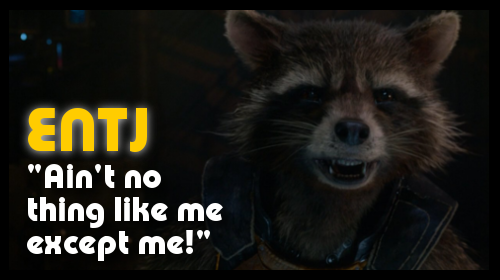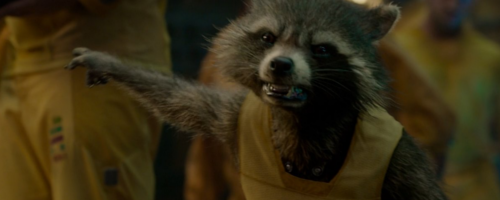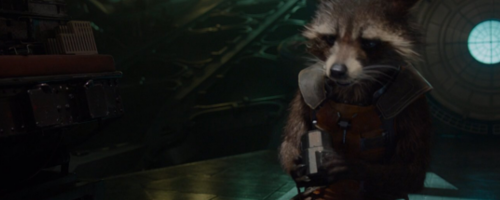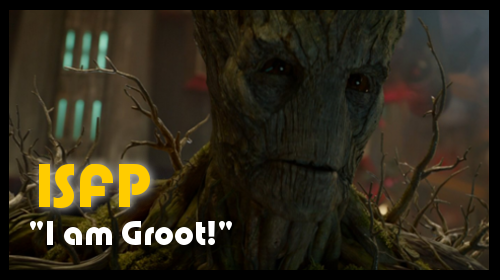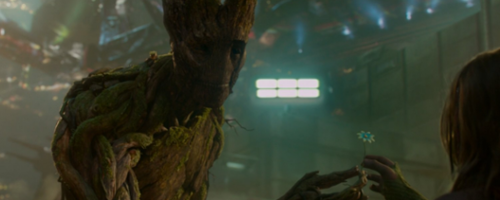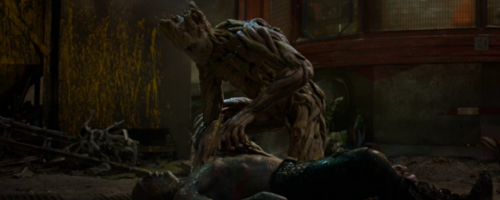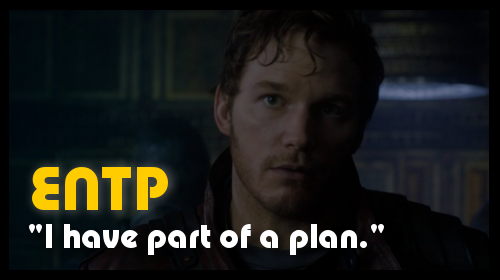ENTJ, the Commander, the Field-Marshall, the Trailblazer
Adapting characters from one medium to another can sometimes result in a few changes. I haven’t read the Guardians of the Galaxy comics, but the blogger at Zombies Ruin Everything has, and he has a nice article typing the original comic-book versions of the characters. He also wrote a follow-up that types some of the supporting characters in the movie.
I’m sticking to the big five for this series, and so that brings us to a rousing end with Rocket Raccoon! (Note: the title for this post calls him only “Rocket,” since he doesn’t seem to know what a raccoon is in the movie. Like he says, ain’t no thing like him except him!)
Dominant Function: Extraverted Thinking (Te), “Organize the Experience”
Rocket knows what he wants and takes charge of situations immediately. Despite his small size, he rules the roost at the prison as soon as he enters. With Groot as his muscle, he informs all the inmates that Quill belongs to them: “You wanna get to him, you go through us! Or, more accurately, we go through you!”
Rocket judges others by their usefulness to his goals. He’s clearly irritated with Groot’s spaciness, but he keeps him around for his effectiveness as a fighter—and, one would think, because he doesn’t talk back much. When we first meet him, he’s getting a kick out of judging people’s fashion and lifestyle choices as he searches for a target. When Rocket tells Quill he needs a guy’s prosthetic leg for their escape plan, he says, “God knows I don’t need the rest of him. Look at him. He’s useless.” He also gets frustrated when Quill says stealing the battery in the prison is impossible, and yells at him to find a way to make it happen, because it’s essential to the plan.
Rocket has escaped from 22 prisons and has no doubt he can escape from this one. He plans the entire escape step by step, and then effectively carries it off on the fly when the sequence is triggered early. Throughout the movie, he’s the first to raise objections to any plan anyone else comes up with, mustering a good laugh at Quill’s “12% of a plan.” By the end of the movie, Rocket is giving orders to the Nova Corps, directing their defense of the planet when Ronan’s forces attack.
Auxiliary Function: Introverted Intuition (Ni), “Anticipate the Experience”
Rocket is always planning one step ahead of everyone else. He can see all the moving parts he needs to make his plans work—whether it’s escaping a prison or building a new gadget or weapon. He criticizes others’ plans for their short-sightedness, pointing out to Quill that asking them to help him fight Ronan is asking them to die. Continue reading
